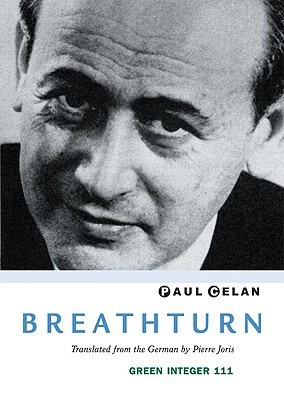What do you think?
Rate this book


279 pages, Paperback
First published January 1, 1965
In the early sixties, that is, midway through Paul Celan's writing career, a radical change, a poetic Wende, or turn, occurred, later inscribed in the title of the volume Atemwende | Breathturn, heralding the poetic he was to explore for the rest of his life. His poems, which had always been highly complex but rather lush, with an abundance of near-surrealistic imagery and sometimes labyrinthine metaphorically - though he vehemently denied critics' suggestion that his was a "hermetic" poetry - were pared down, the syntax grew tighter and more spiny, and his trademark neologism and telescoping of words increased, while the overall composition of the work became much more serial in nature. That is, rather than insisting on individual, titled poems, he moved toward a method of composition by cycles and volumes.
The numbers, in league
with the images' doom
and counter-
doom.
The clapped-on
skull, at whose
sleepless temple a will-
of-the-wisping hammer
celebrates all that in
worldbeat.
- (pg. 67)
To stand, in the shadow
of the stigma in the air.
Standing-for-no-one-and-nothing.
Unrecognized,
for you
alone.
With all that has room in it,
even without
language.
- (pg. 79)
Hollow lifehomestead. In the windtrap
the long
blown empty
flowers. A handful
sleepcorn
drifts from the mouth
stammered true
out towards the snow-
conversations.
- (pg. 113)
Tell your fingers
accompanying you far in-
side the crevasses, how
I knew you, how far
I pushed you into the deep,
where my most bitter dream
slept with you heart-fro, in the bed
of my inextinguishable name.
- (pg. 119)
When they impale
the last shadow,
you burn the vowing hand free.
- (pg. 127)
Half-death,
suckled on our life,
lay ash-image-true around us -
we too
kept on drinking, soul-crossed, two swords,
stitched on heavenstones, born of wordblood,
in the nightbed,
larger and larger
we grew, intergrafted, there was
no name left for
what urged us on (one of thirty-
-and-how-many
was my living shadow,
who climbed up the delusion-stairs to you?)
a tower,
the half-one built into the Whither,
a Hradčany
all of goldmaker's No,
bone-Hebrew,
ground to sperm,
ran through the hourglass,
through which we swam, two dreams now, tolling
against time, on the squares.
- (pg. 159)
You, the hair taken from
the lip with the bright-
seeing highsleep:
threaded through the goldeye
of the sun-alright ash-
needle.
You, the knot torn out
of the throat with
the One Light:
run through by needle and hair,
underway, underway.
Your reversals, incessantly, round
the seven-
fingered kisshand behind
happiness.
- (pg. 239)
An ear, severed, listens.
An eye, cut in strips,
does justice to all this.
- (pg. 71)
They eat:
the bedlamite's truffle, a piece
unburied poetry,
found tongue and tooth.
A tear rolls back into its eye.
- (pg. 147)
who
is invisible enough
to see you?
- (pg. 213)
The world is gone, I have to carry you.
- (pg. 233)